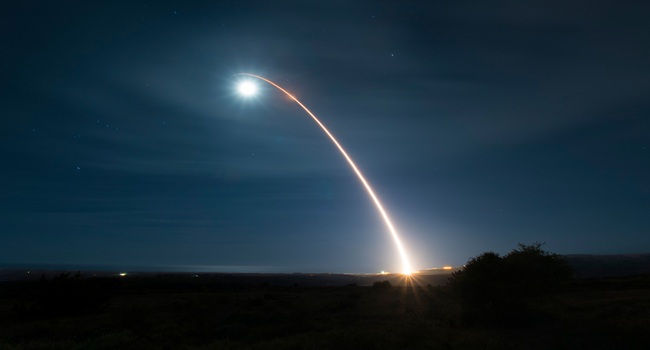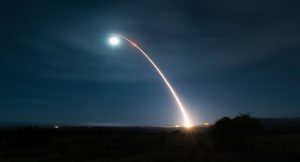
GLOBAL OUTRAGE AS TRUMP HINTS AT RESUMPTION OF U.S. NUCLEAR WEAPONS TESTING
Agency Report

A wave of international condemnation trailed on Friday after former U.S. President Donald Trump reiterated plans to resume nuclear weapons testing, sparking alarm among world leaders and disarmament advocates.
Speaking aboard Air Force One en route to Florida, Trump confirmed that “testing” would soon begin but declined to clarify whether he meant live nuclear explosions, saying only, “You’ll find out very soon… if other countries do it, we’re going to do it.”
No nation except North Korea has conducted explosive nuclear tests in decades. The United States last carried out such a test in 1992, under then-President George H.W. Bush, who imposed a moratorium still observed by subsequent administrations.
Trump’s remarks came a day after Russia announced tests of a nuclear-capable torpedo and a new cruise missile, escalating tensions between the two superpowers.
The announcement has been met with sharp criticism worldwide. Iran’s Foreign Minister Abbas Araghchi condemned Trump’s statement as “regressive and irresponsible,” accusing Washington of hypocrisy for demonising Tehran’s peaceful nuclear program.
In Japan, Nihon Hidankyo, an association of atomic bomb survivors, lodged a formal protest with the U.S. embassy, saying the move “directly contradicts global efforts toward a peaceful world without nuclear weapons.”
United Nations Secretary-General Antonio Guterres also weighed in, declaring through a spokesperson that “nuclear testing can never be permitted under any circumstances.”
China’s Foreign Ministry urged Washington to “earnestly abide by the Comprehensive Nuclear-Test-Ban Treaty (CTBT)”, which the U.S. signed in 1996 but never ratified.
Domestically, the statement has drawn mixed reactions. Defense Secretary Pete Hegseth defended the proposal as “a responsible policy,” while Vice President JD Vance said testing was necessary to ensure the U.S. arsenal “functions properly,” without specifying the nature of the planned tests.
The Kremlin questioned Trump’s understanding of recent Russian military activities, denying that its weapons drills amounted to nuclear testing. “We hope that the information was conveyed correctly to President Trump,” said Russian spokesperson Dmitry Peskov, though he warned Moscow might respond in kind if the U.S. resumed live detonations.
According to the Stockholm International Peace Research Institute (SIPRI), the U.S. possesses around 3,700 nuclear warheads, compared to 4,309 for Russia and 600 for China, excluding those scheduled for dismantling.
Trump’s remarks have revived fears of a new nuclear arms race, threatening decades of global non-proliferation progress and raising questions about America’s commitment to disarmament treaties.
As the world awaits further clarification from Washington, the uncertainty surrounding Trump’s directive has cast a shadow over international security and reignited memories of the Cold War’s nuclear brinkmanship.
